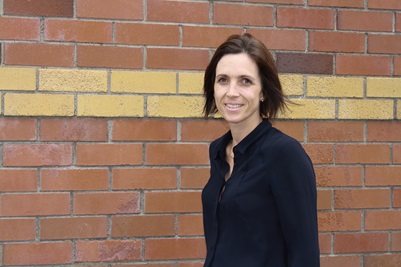2024 | Volume 25 | Issue 3

Aotearoa New Zealand (AoNZ) general, breast and endocrine surgeon Alice Febery believes the standard of care should be just as high in the regions as in the city.
As AoNZ representative on the Rural Health Equity Steering Group, Dr Febery is working to promote the value of General Surgery skills, to create stronger links between city and regional services and to improve systems to encourage surgeons to work outside metropolitan areas.
“I think it’s really important to ensure that we can minimise the effect that locality has on the outcomes for patients.
“We need to break down barriers to access so patients who live in the regions receive the same care [as those in cities] through clinical decision-making, working towards the operation, the procedure and the aftercare—throughout the whole journey,” she says.
A change Dr Febery believes would help bridge any gaps is to increase the recognition of general surgery skills—which tend to be demanded in regional and rural areas—alongside the highly specialised skills that are demanded in cities.
“I think sub-specialisation is great and it means that patients receive excellent care, but at the same time, across Australasia, we need a certain number of general surgeons outside metropolitan areas. I think that to a large extent we can do generalism, without compromising specialisation. But we must be intentional to get that balance right.”
Dr Febery would like to see Fellowship, accreditation and hospital programs reflect this reality to attract some surgeons away from focusing on increasingly narrow specialties, and encourage them to maintain a broad skill set.
To enable this change, two elements of the AoNZ Rural and Regional Health Strategy are of particular interest to her: ensuring surgeons have the broad range of skills necessary for working in regional areas after completing SET training, and ensuring International Medical Graduates are encouraged and supported to work in the regions by streamlining processes to make this possible.
According to Dr Febery, AoNZ has a particular advantage in ensuring equity in healthcare standards due to its size, which makes it possible to build strong links between regional and metropolitan hospitals and healthcare services.
Their proximity can help ensure equity of standards, as long as communication and cooperation are fostered.
“Regional surgeons and metropolitan surgeons should be actively pursuing a really strong relationship.
“You might meet in-person perhaps once or twice a year, but as soon as you have done that, you have a connection and then they know the context from which you’re calling with a patient.
These relationships are very feasible in Australasia, and certainly here.”
Dr Febery has enjoyed returning to work in the regional area of Southland and values the opportunity it affords her to balance her family life—with three young children—and her busy professional life in public and private practice.
“I feel that I can get more out of every day, so I have a greater ability to balance my different priorities.
“Outside the city, you’re not sitting in traffic for 90 minutes every day. I can drop my kids off at daycare and school in a straight line and be at the clinic by 8.30 in the morning. If there is something like a sports day, I can zoom over to the school and be there in 10 minutes.
“There’s no way I could do what I do and have the schedule I have in a larger city.”
Dr Febery grew up on a farm in Southland and after working across AoNZ and in Brisbane, Australia, returned to the region.
Medicine and surgery were not her first ambitions; as a university student she originally studied speech therapy. However, she did not feel at home in the field and switched to medicine to become a rehabilitation physician.
Her plans shifted again after her surgical round, about which she says, “It was love at first sight.”
As a surgeon, Dr Febery appreciates the role that she can play in directly improving patients’ health.
“It’s quite an interventional specialty and you are physically able to do something for someone, which is incredibly satisfying, and quite addictive.”
She chose to pursue General Surgery for its variety and problem-solving nature.
“I've always been attracted to General Surgery because it has the undifferentiated patient where you have a diagnostic dilemma, and you have to integrate the information about their history as well as their pathology. It’s not all served up to you and you can’t necessarily tell what operation you’re going to do until you meet the patient, take the history and look at the pathology.
“There’s a lot of creativity and science mixed together with General Surgery,” she says.